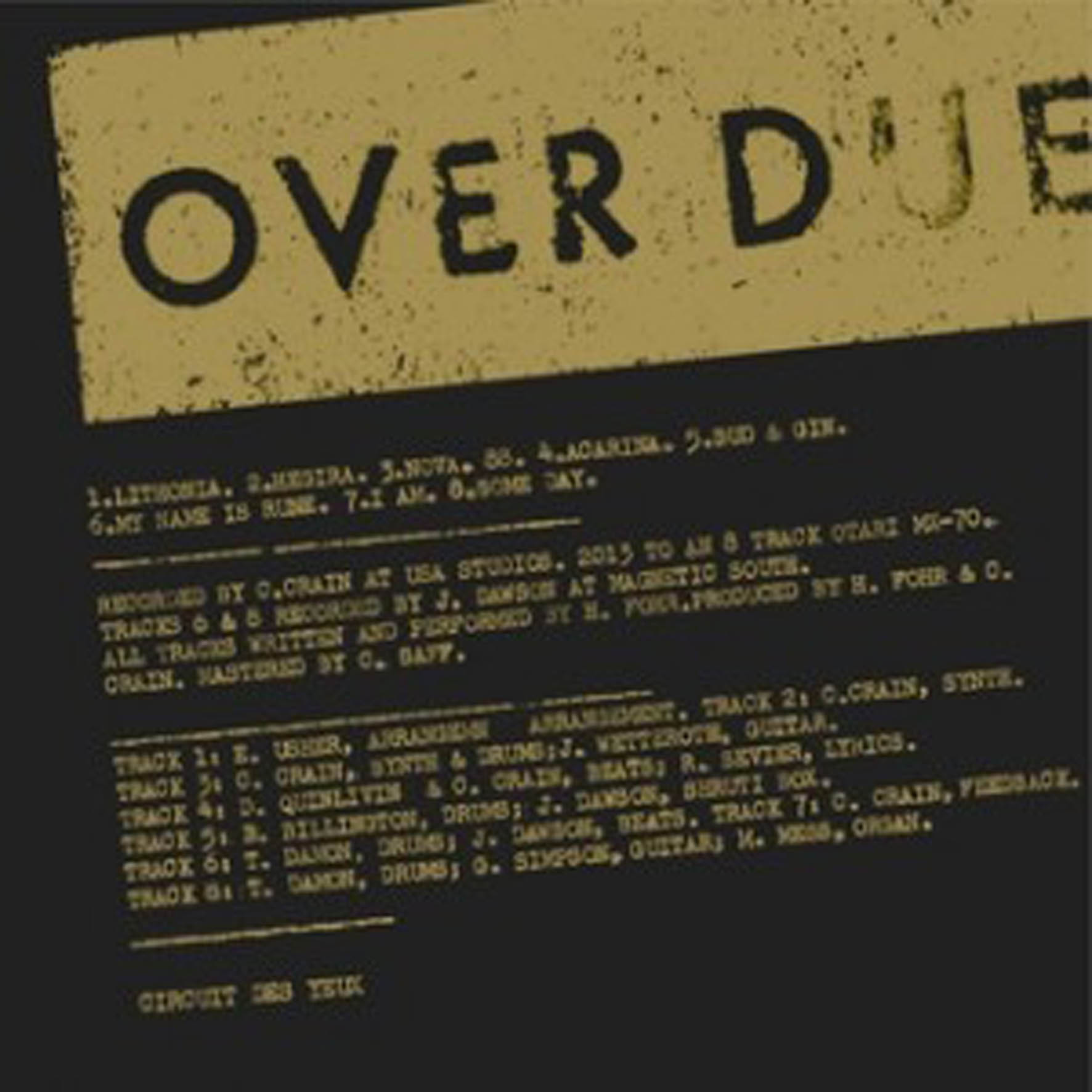Circuit Des Yeux, "Overdue"
 After three weeks of listening to Haley Fohr's fourth (or fifth) album, I still have absolutely no idea what to make of it, which is probably a good thing (unless it is not).  In any case, Overdue finds Fohr further distancing herself from her abstract experimental past and embracing an equally strange present (and future?) that resembles some kind of unholy mixture of Zola Jesus, Xiu Xiu, Teenage Jesus and the Jerks, Codeine, and an exorcism.  As cool as that admittedly sounds, it does not resonate nearly as much with me as Fohr's earlier work.  The sheer force and conviction on display is still quite impressive though.
After three weeks of listening to Haley Fohr's fourth (or fifth) album, I still have absolutely no idea what to make of it, which is probably a good thing (unless it is not).  In any case, Overdue finds Fohr further distancing herself from her abstract experimental past and embracing an equally strange present (and future?) that resembles some kind of unholy mixture of Zola Jesus, Xiu Xiu, Teenage Jesus and the Jerks, Codeine, and an exorcism.  As cool as that admittedly sounds, it does not resonate nearly as much with me as Fohr's earlier work.  The sheer force and conviction on display is still quite impressive though.
Overdue opens in both strong and deceptive fashion, as "Lithonia" is a very structured and melodic piece built upon a beautiful string arrangement that is impossible not to compare to Zola Jesus' collaboration with Jim Thirlwell (Versions).  While it is arguably the album's strongest song, Fohr never returns to that aesthetic ever again.  In fact, there is no clear stylistic thread to the album at all–the only real constant is Haley's deep, powerful voice and perhaps a tendency towards unadorned, stripped-down songcraft.  That makes for a very schizophrenic listening experience, as it almost feels like Fohr is rapidly cycling through a different number of guises hoping to find one that fits.  If this were Circuit Des Yeux's first album, I would chalk that up to Fohr's youthful inability to properly harness her incredible intensity, but she has been doing this long enough that it can only be a bizarre and deliberate artistic choice instead.
Overdue's most frequently explored territory is a kind of melancholy-to-outright-gloomy acoustic folk best represented by pieces like "My Name is Rune" and "Hegira."  In keeping with the disorienting theme of the album though, even otherwise straightforward pieces gradually become musically idiosyncratic (which is appropriate, given the uniqueness of Fohr's vocals).  "Rune" has the most subtle twist, as the minor key arpeggios are eventually joined by a warm and gently pulsing organ chord.  "Hegira," on the other hand, features some unexpected electric guitar snarl and lush, goth-inspired synthesizer chords, while the otherwise pleasant and sprightly instrumental "Bud & Gin" is gradually overwhelmed by pounding drums and wordless warbling before morphing into a backwards coda.
Notably, the most striking song on the entire album is also the simplest: "I Am."  In fact, it almost sounds like it could have been made up and performed on the spot, aside from the multiple guitar tracks: it is basically just a few grime-encrusted chords, a little vocal distortion, and an almost-possessed-sounding refrain of "I want out I want out I want out I want out."  Again, I am reminded of other artists (Jarboe and Lydia Lunch at their most hostile and unhinged), but there is nothing actually derivative occurring–this is simply how direct, blunt, wild-eyed rage sounds.
The remainder of the album calls to mind early '90s slow-core like the aforementioned Codeine: plodding, slow-motion beats and distorted minor key guitar chords, the sole  twist being that Fohr's unique vocals remain at their usual near-operatic intensity.  One song ("Acarina") warps that formula quite a bit further though, sounding like an unplugged Codeine accompanied by a gibbering, barking insane person and some kind of ritualistic chanting.  I am not sure that that is necessarily a good thing, but it is certainly a one-of-a-kind thing, which I suppose is its own reward.
Ultimately, I could not connect with most of Overdue's songs, but it still feels like a success artistically, even if it might be a bit of a transitional one.  Fohr is taking a difficult route with her work, gradually stripping away all of her previous electronics and artifice to create something raw, honest, and direct.  That might not be particularly easy on my ears, but it is not meant to be and the intent is certainly laudable (even though I love electronics and artifice).  Great art tends to be uncomfortable and this is flawed great art: even though I wish this album had a more coherent focus and was a bit less oppressively dark, I cannot help but admire the sheer force and otherness of Haley's personality.  In fact, I suspect that the detached medium of an album is probably a hopelessly muted way to experience Circuit Des Yeux, as it is easy to imagine these songs being scarily riveting in a live context.
 



